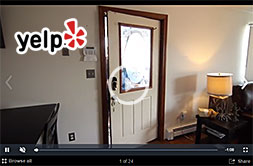
In the pursuit of enhancing fire safety and ensuring the well-being of its residents, Massachusetts has implemented specific regulations that go beyond the standard installation of smoke detectors in residential properties. Particularly, the requirement for a fire alarm system in homes with more than 12 smoke detectors reflects the state’s commitment to comprehensive and advanced fire detection and prevention measures. Let’s delve into the reasoning behind this regulation and the benefits it brings to homeowners and their communities.
1. Enhanced Integration and Coordination:
- The requirement for a fire alarm system in homes exceeding 12 smoke detectors is grounded in the need for enhanced integration and coordination. A fire alarm system offers a centralized platform that connects multiple detectors throughout the house. This interconnected network ensures synchronized responses, enabling all smoke detectors to sound an alarm simultaneously when smoke or fire is detected in any part of the home.
2. Swift Emergency Response:
- A fire alarm system facilitates a faster and more effective emergency response. When triggered, the system immediately communicates with a monitoring center or emergency services, expediting the arrival of assistance. This swift response is crucial in minimizing property damage, preventing injuries, and potentially saving lives.
3. Advanced Detection Capabilities:
- Fire alarm systems often incorporate advanced detection technologies that go beyond standard smoke detection. These systems may include heat sensors, carbon monoxide detectors, and other features designed to identify various fire-related risks. The integration of such technologies enhances the overall effectiveness of the system, providing a more comprehensive approach to fire safety.
4. Mitigation of False Alarms:
- A centralized fire alarm system helps mitigate the occurrence of false alarms. With proper integration, the system can distinguish between various signals, reducing the likelihood of unnecessary alerts. This feature enhances the reliability of the fire detection system and ensures that residents respond appropriately to genuine emergencies.
5. Compliance with Evolving Standards:
- Massachusetts’ requirement for a fire alarm system in homes with more than 12 smoke detectors aligns with evolving national and international safety standards. As technology advances and best practices evolve, fire alarm systems provide a flexible and adaptable solution that can be updated to meet the latest safety requirements.
6. Improved Notification Systems:
- Fire alarm systems typically include advanced notification features that go beyond audible alarms. These may include visual signals, notifications to smartphones or smart devices, and even integration with smart home automation systems. These diverse notification methods ensure that residents are promptly and comprehensively informed about potential fire hazards.
7. Comprehensive Home Protection:
- The implementation of a fire alarm system in homes exceeding 12 smoke detectors reflects a commitment to comprehensive home protection. It goes beyond the basic requirements, offering residents a sophisticated and interconnected safety net that addresses various fire-related risks and enhances overall security.
In conclusion, Massachusetts’ requirement for a fire alarm system in homes with more than 12 smoke detectors underscores the state’s dedication to cutting-edge fire safety measures. By mandating advanced integration, swift emergency response, and the incorporation of advanced detection technologies, the regulation aims to create a safer living environment for residents. As homeowners embrace this requirement, they contribute to a culture of safety and resilience, aligning with Massachusetts’ proactive approach to safeguarding its communities from the potential dangers of fire.


